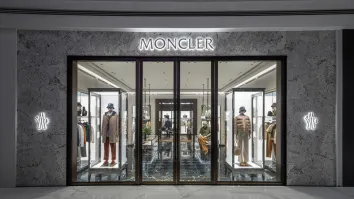
China's retailers must shift to sustainable operations: report
Improving shopper loyalty is expected to be critical as consumers spend less.
As China’s retail industry faces continued deflationary pressures, retailers in the country must shift focus from gross merchandise value (GMV) and top-line growth to sustainable operations and profit margin, according to a report from Bain.
Bain said improving shopper loyalty via differentiated services and consumer engagement is critical, as retailers need to establish a differentiated portfolio and attract traffic with private labels or exclusive products whilst consumers spend less.
“Following a challenging three quarters bearing the brunt of Covid, next year is likely to remain volatile. By keeping their fingers on the pulse of changing consumer needs and making strategic adjustments, brands and retailers alike can position themselves for success,” the report stated.
With a nuanced approach, based on understanding consumer needs and building agility into operations, adaptable fast-moving consumer goods (FMCG) companies can chart a path toward healthy performance in 2023 and beyond, Bain said.
READ MORE: Consumer spending in China to see ‘steady growth'
China’s FMCG industry faced significant challenges in the first three quarters of 2022. At the end of 2021, just as the country had begun to rebound from Covid-19’s initial blow, a resurgence of cases disrupted supply chains, heightened consumer anxiety, and triggered another economic slowdown, Bain said.
However, despite the odds, China’s FMCG industry showed resilience with 3.6% YoY growth and strong third-quarter recovery, exceeding China’s gross domestic product growth in Q2 and Q3, reversing the trend in past years, the report stated.
The big hero this year was volume: Market growth was driven by a 5.9% gain, as average selling prices (ASP) continued to decline despite rising input costs, Bain said.
“Despite great uncertainty, there are reasons for FMCG players to be hopeful. China’s middle class continues to grow, along with urbanization. A controlled rising input cost trend is on the horizon, and confidence in consumer spending is expected to return,” the report added.
Growth in e-commerce has slowed with some categories, like facial tissue and makeup starting to show a decline in online penetration rate, whilst smaller offline store formats such as groceries and convenience stores gained momentum, the report noted.
E-commerce amounted to a 5% YoY growth rate in the first three quarters, relative to 15% between 2020 and 2021, whilst convenience stores grew 9%, relative to nonexistent growth the prior year.
Online-to-offline (O2O) shopping continued to grow as consumers wanted to stock up and fulfil instant needs while avoiding traffic and exposure in physical stores, Bain said.
“Here, a 14.6% increase in store trips compared with last year, not to mention a 6.1% increase in shopper base, was a key growth driver. Among the four O2O platform types, community group buying captured the lion’s share at 46% this year, up from 39% last year,” the report stated.



















 Advertise
Advertise







